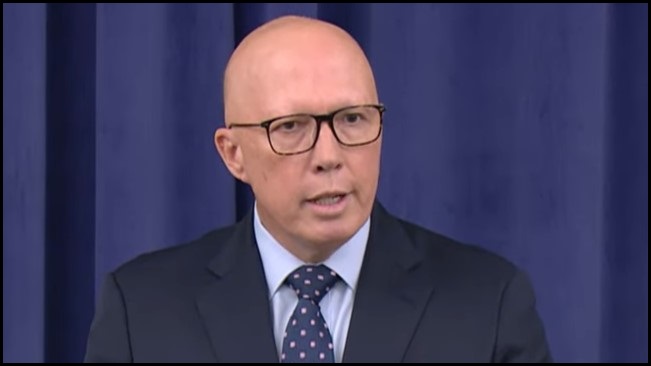The Coalition’s plan to end work from home arrangements in the public service has been slammed by Labor and major unions, who have accused the Opposition of “blindly following” US President Donald Trump.
Opposition Leader Peter Dutton and Shadow Minister for the Public Service Jane Hume announced on Tuesday that if the Coalition wins the upcoming federal election, all public servants will be required to work from an office five days per week.
This would end flexible working arrangements in the public sector, which were solidified in a 2023 union agreement which required work from home requests to be approved by default.
Hume said that this universal right to work from home is “creating inefficiency”.
“We know some departments and agencies are telling stakeholders not to schedule meetings on Mondays or Fridays as there will likely be no one in the office,” Hume said in a speech to the Menzies Research Centre.
“This is common sense policy that will instil a culture that focuses on the dignity of serving the public, a service that relies on the public to fund it, and a service that respects that funding by ensuring they are as productive as possible.”
The productivity justification
Dutton doubled down on the policy on Tuesday, rejecting suggestions it would discriminate against women.
“It doesn't discriminate against people on the basis of gender,” Dutton told reporters.
“It is for public servants. They are refusing to go back to work in Canberra and that is not acceptable when people are on very high wages and people in the suburbs are paying for their wages.”
Dutton did say there would be “opportunities around job sharing” and that for some jobs, it is appropriate for employees to work from home.
“We will increase productivity and efficiency if people are back at work, as was the case before COVID,” he said.
One of Trump’s first actions in his second term as US president was to order all federal employees to return to the office as soon as possible.
Finance Minister Katy Gallagher slammed the Opposition’s policy and said the party is out of touch.
“Clearly the Opposition have no idea about how modern working families operate,” Gallagher told the media on Tuesday.
“Working from home arrangements are a part of private and public sector workplaces in the modern age.”
‘It will hurt working women the most’
The Australian Council of Trade Unions (ACTU) accused the Coalition of “blindly following [Trump’s] lead on workplace priorities”.
“Jane Hume, Peter Dutton and their big business backers can’t wait to start rolling back the clock on workers’ rights and it wouldn’t end with simply banning work from home in the public sector,” ACTU president Michele O’Neil said.
“Ending work from home arrangements in this Trump copycat plan is really an attack on flexible work arrangements and it will hurt working women the most.”
The Community and Public Sector Union (CPSU), which negotiated the deal to allow public servants to work from home, has also hit back at the Coalition’s plan.
“The CPSU negotiated new industry-leading rights for public sector workers, including work from home rights, in the latest round of bargaining,” CPSU national secretary Melissa Donnelly said.
“These arrangements work well; and research has shown that working from home increases productivity.
“The last thing workers need in the middle of a cost-of-living crisis is Peter Dutton coming in and swinging an axe at their working rights and conditions.
“He should be supporting women to stay in the workforce, not making it harder.”
There may be a mass exodus from the public service if the work from home ban is implemented, with research last year finding that nearly 40 per cent of workers would quit their jobs if they are forced to return to the office full-time.
A report from the Centre for Economic Development Australia last year found that more than a third of Australians are still working from home on a regular basis, a steep increase from five per cent in 2016.










